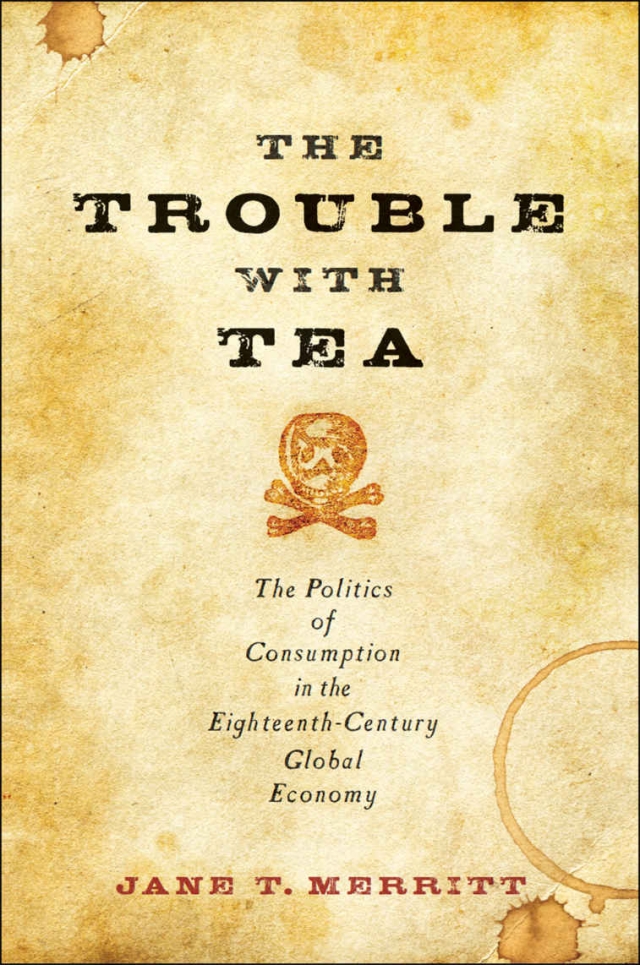The Trouble with Tea
Book review

The Politics of Consumption in the Eighteenth-Century Global Economy
The Trouble with Tea. The Politics of Consumption in the Eighteenth-Century Global Economy, Jane T. Merritt, Johns Hopkins University Press, Baltimore, 2017, paperback, 212 pp., £17.00, ISBN 9781421421537
No event in the American Revolution is perhaps more vividly recalled than the Boston tea party - to the extent that, as the blurb on the cover of this book claims, ‘Americans imagined tea as central to their revolution’. After years of colonial boycotts, the Sons of Liberty ‘kindled the fire of independence’ when they dumped tea in Boston harbour in 1773. But this was not merely a highly effective ‘headline grabbing’ protest in its day, since ‘to reject tea as a consumer item and symbol of “taxation without representation” was to reject Great Britain as master of the American economy and government’.
However (as the sub-title suggests), this study is not solely focused upon a graphic episode in the American Revolution. The historian Jane T. Merritt, an associate professor of history at Old Dominion University, also explores tea as ‘a central component of eighteenth-century global trade' and probes its connections to the politics of consumption.
She argues that tea caused trouble over the course of the eighteenth century in a variety of ways. She traces ‘the multifaceted impact of that luxury item on British imperial policy, colonial politics, and the financial structure of merchant companies'. She challenges ‘the assumption among economic historians that consumer demand drove merchants to provide an ever-increasing supply of goods’ thereby triggering an early eighteenth-century consumer revolution. Moreover, she concludes that, by the mid-eighteenth century, British subjects at home and in America increasingly consumed tea on a daily basis, ensuring that tea was no longer viewed as a luxury but as a necessity.
Students at all levels utilising this text will value the appended detailed essay on both primary and secondary sources in addition to the detailed end-notes.

